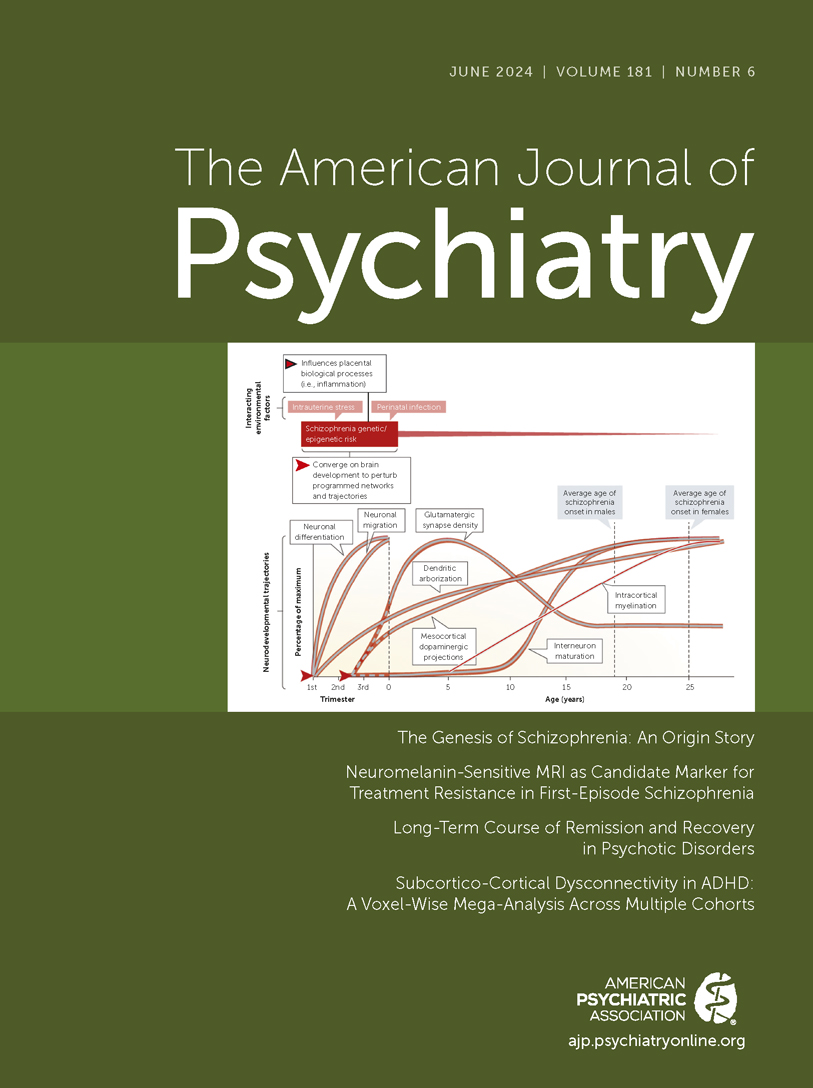The Genesis of Schizophrenia: An Origin Story
Abstract
Schizophrenia is routinely referred to as a neurodevelopmental disorder, but the role of brain development in a disorder typically diagnosed during early adult life is enigmatic. The authors revisit the neurodevelopmental model of schizophrenia with genomic insights from the most recent schizophrenia clinical genetic association studies, transcriptomic and epigenomic analyses from human postmortem brain studies, and analyses from cellular models that recapitulate neurodevelopment. Emerging insights into schizophrenia genetic risk continue to converge on brain development, particularly stages of early brain development, that may be perturbed to deviate from a typical, normative course, resulting in schizophrenia clinical symptomatology. As the authors explicate, schizophrenia genetic risk is likely dynamic and context dependent, with effects of genetic risk varying spatiotemporally, across the neurodevelopmental continuum. Optimizing therapeutic strategies for the heterogeneous collective of individuals with schizophrenia may likely be guided by leveraging markers of genetic risk and derivative functional insights, well before the emergence of psychosis. Ultimately, rather than a focus on therapeutic intervention during adolescence or adulthood, principles of prediction and prophylaxis in the pre- and perinatal and neonatal stages may best comport with the biology of schizophrenia to address the early-stage perturbations that alter the normative neurodevelopmental trajectory.
Access content
To read the fulltext, please use one of the options below to sign in or purchase access.- Personal login
- Institutional Login
- Sign in via OpenAthens
- Register for access
-
Please login/register if you wish to pair your device and check access availability.
Not a subscriber?
PsychiatryOnline subscription options offer access to the DSM-5 library, books, journals, CME, and patient resources. This all-in-one virtual library provides psychiatrists and mental health professionals with key resources for diagnosis, treatment, research, and professional development.
Need more help? PsychiatryOnline Customer Service may be reached by emailing [email protected] or by calling 800-368-5777 (in the U.S.) or 703-907-7322 (outside the U.S.).



